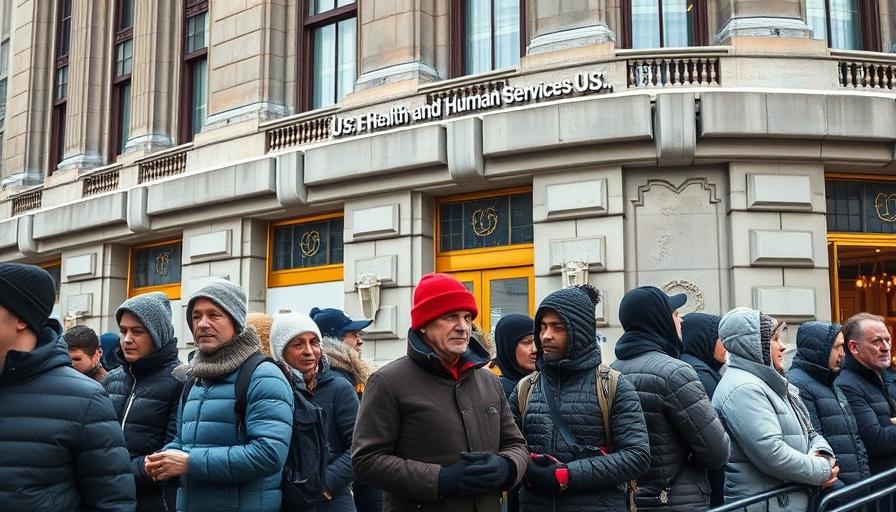
RFK Jr.’s Cuts: A Thorn in the Side of Minority Health Progress
The recent overhaul of the Department of Health and Human Services (HHS) under Secretary Robert F. Kennedy Jr. has raised serious concerns among health policy experts, particularly regarding its impact on minority health offices across the country. These offices have been pivotal in reducing health disparities affecting minority and underserved populations, but recent reports indicate they are facing significant cuts, resulting in layoffs of key staff, including directors and frontline workers.
The Ripple Effect of Office Closures
The HHS, which oversees critical functions aimed at improving the health of minorities, has seen major cutbacks in at least seven of its minority health offices. Units most affected include the HHS Office of Minority Health and the National Institute on Minority Health and Health Disparities (NIMHD). Additionally, related offices within major agencies such as the Food and Drug Administration (FDA) and the Centers for Disease Control and Prevention (CDC) are also experiencing diminished support.
Each of these divisions has specialized roles, from promoting health education to improving access to care. The loss of these offices could equate to a substantial setback in the fight against systemic health issues. The concern is not just about numbers but about how these layoffs could worsen the existing health disparities in the U.S., exacerbating issues related to access to insurance and medical care.
Lessons from the Past: What We Stand to Lose
A historical context of previous public health initiatives illustrates the importance of these minority health offices. Over the years, numerous campaigns have successfully improved healthcare access, tailored to the unique needs of minority communities. From vaccination programs that target underrepresented populations to initiatives addressing mental health, these offices have pioneered strategies that save lives.
For example, a report from the CDC noted that specific outreach programs for African American and Hispanic communities led to higher insurance enrollment rates during the Affordable Care Act expansion. A retreat from these efforts will likely reverse gains made regarding healthcare equity.
Future Predictions: Where Do We Go From Here?
Health policy analysts predict that if these cuts continue, underserved communities will feel immediate effects: increased waiting times for healthcare services, missed preventive care opportunities, and potentially, higher rates of untreated conditions. A spectrum of health disparities deeply rooted in systemic inequities will likely emerge even more pronounced in the aftermath of these cuts.
These predictions are underscored by statistical data showcasing the correlation between available health resources and health outcomes. For instance, a study by the National Health Institute found that populations with less access to healthcare resources experienced higher prevalence rates of chronic diseases.
Community Response: How Can We Fight Back?
In response to these distressing cuts, community organizations are rallying to advocate for the restoration of funding and support for minority health programs. Awareness campaigns are gaining traction online and offline, urging citizens to contact their representatives and voice concerns over these crucial changes. Building coalitions across various sectors—healthcare, education, and advocacy—can magnify the impact of these movements.
Additionally, there are opportunities to engage local communities in healthcare initiatives to maintain momentum. Grassroots programs focused on education and care can be invaluable in providing resources as institutional support wanes.
Conclusion: The Value of Advocacy and Community Engagement
In light of the hurtful cuts to minority health offices, it is more important than ever for communities to remain vigilant and engaged. Each individual can contribute to the larger goal of equitable health access by staying informed and advocating for necessary resources. Mobilizing efforts and sharing information can create a collective force for change that emphasizes the value of health equity for all populations.
Staying engaged with community health initiatives not only helps alleviate immediate crises but also contributes to long-term systemic advancements in health policy. As we navigate the challenges posed by such deep cuts, let us remember the importance of each voice in the collective call for change.
 Add Row
Add Row  Add
Add 




 Add Row
Add Row  Add
Add 

Write A Comment